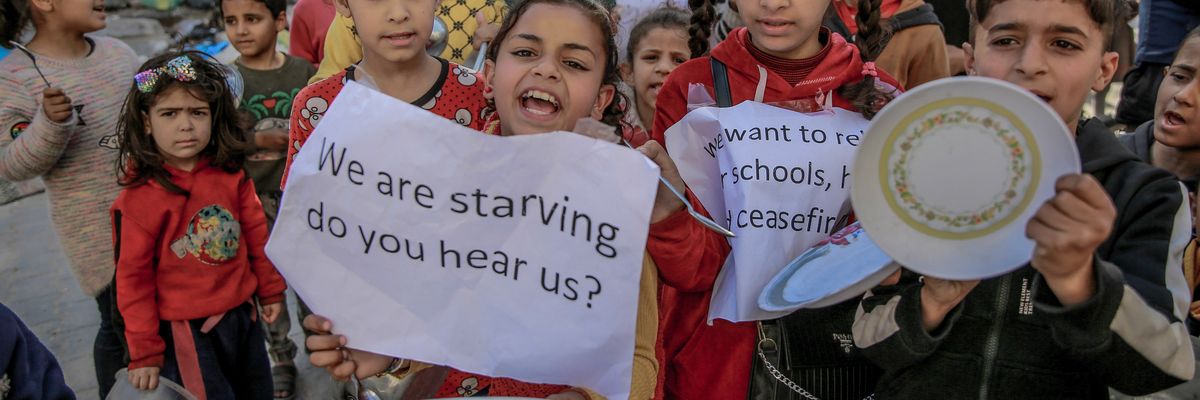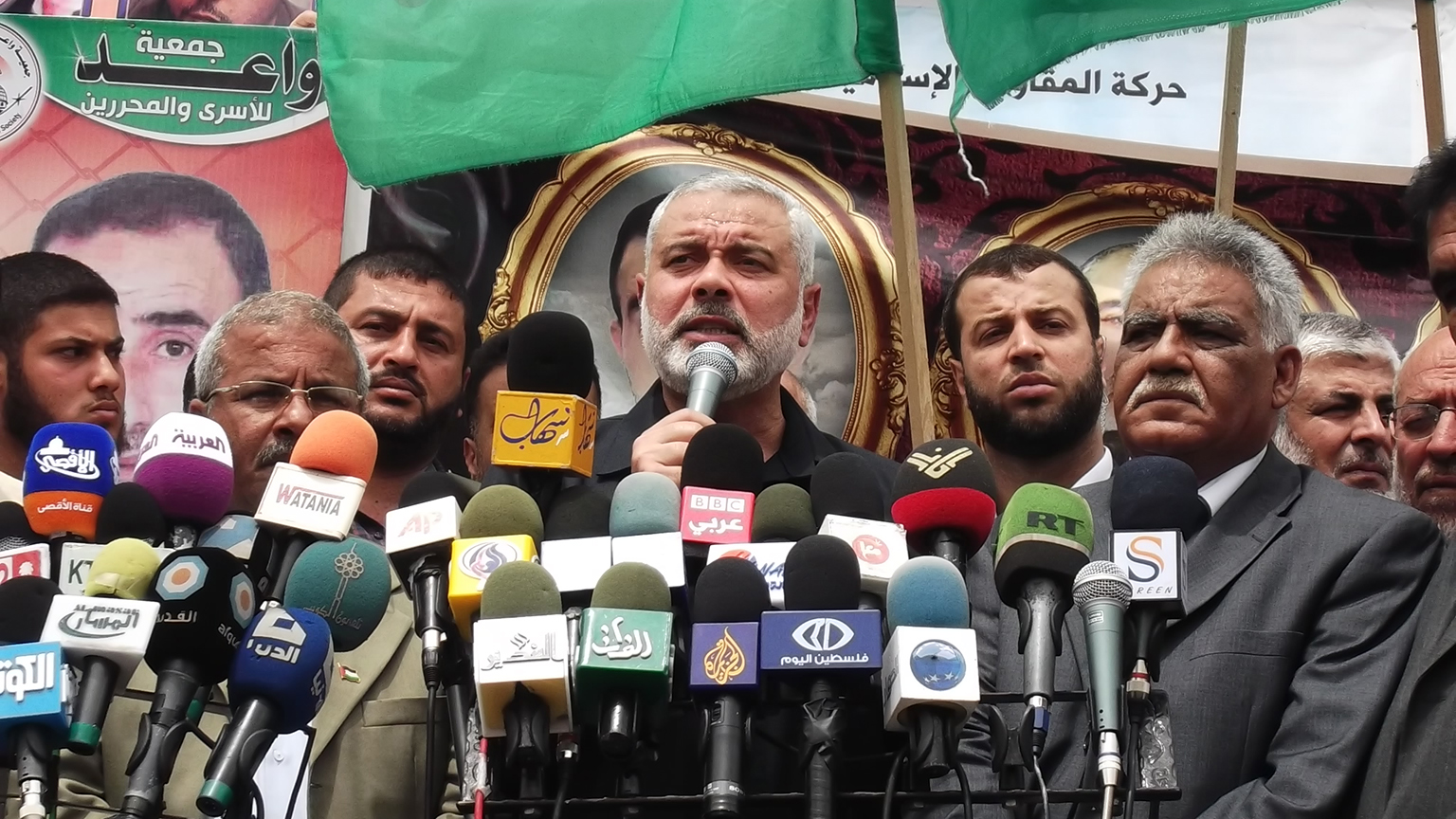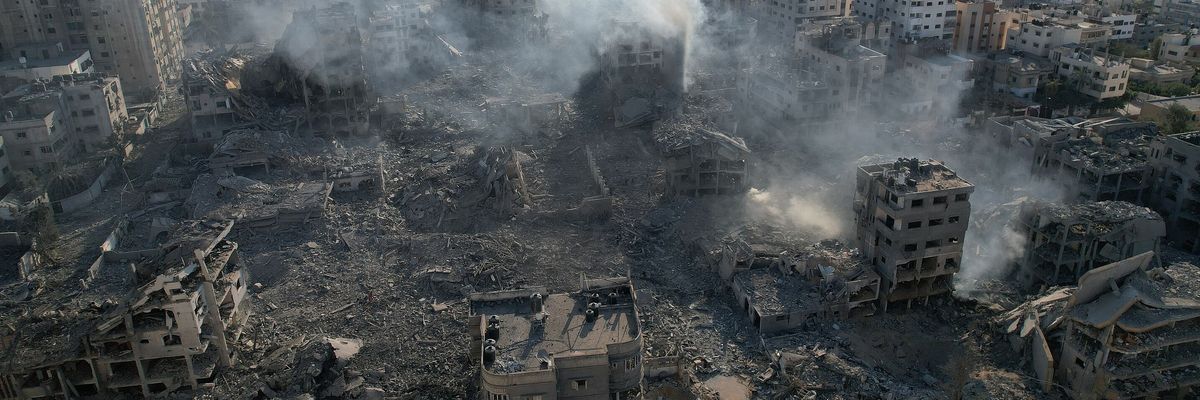‘Genocidal Actions’ Persist in Gaza as Israel Blocks Aid and US Weapons Flow
Original article by JULIA CONLEY republished from Common Dreams under Creative Commons (CC BY-NC-ND 3.0).

“President Joe Biden must act now to make famine prevention a top priority and be prepared to deploy meaningful U.S. leverage—including pausing arms sales,” said two humanitarian aid group leaders.
A week after Israeli officials promised the Biden administration they would open a border crossing and a port to allow humanitarian aid into Gaza, relief organizations and the United Nations reported Friday that life-saving supplies are still being blocked, and warned that the White House must take more decisive action to force Israel to stop starving Palestinians.
The U.N. reported that just 212 aid trucks entered Gaza on Tuesday, far lower than the 467 reported by Israeli Defense Minister Yoav Gallant, who promised to “flood Gaza with aid” after a tense phone call between Prime Minister Benjamin Netanyahu and U.S. President Joe Biden last Thursday.
The phone call came in response to Israel’s bombing of a World Central Kitchen aid convoy that killed seven aid workers. On the call, Biden reportedly threatened to halt weapons deliveries unless a surge in humanitarian aid was allowed into Gaza.
But as The Guardian reported Friday, the Ashdod port has not been opened yet, and instead of opening the Erez crossing last Sunday as promised, Israel has opened another crossing into northern Gaza but has not yet allowed U.N. agencies to use it.
“Netanyahu scammed Biden again: A week after he promised to open the Erez crossing and Ashdod port to increase aid to Gaza, the [Israel Defense Forces] & port authorities say they NEVER received any instructions of this nature,” said Muhammad Shehada, communications chief for Euro-Med Human Rights Monitor, citing reporting from Israel’s N12 channel.
The Guardianreports that Israel has set an ultimate target of 500 aid trucks per day to enter Gaza—the same amount that delivered relief to residents before the Israeli bombardment rendered the enclave’s food system, healthcare facilities, and other public services inoperable.
“The call for 500 trucks, with a combination of commercial and humanitarian shipments, is the absolute minimum,” Juliette Touma, communications director for the U.N. Relief and Works Agency for Palestine Refugees in the Near East (UNRWA) toldThe Guardian. “Probably what Gaza needs is at least 1,000 trucks a day.”
The U.N. found that just 141 aid trucks entered the enclave on Wednesday. The Washington Postreported that Israeli authorities have blocked aid deliveries containing items such as chocolate croissants, maternity kits, sleeping bags, stone fruits, and oxygen cylinders.
Jamie McGoldrick, the U.N. humanitarian coordinator, said Friday that “very limited” aid deliveries have continued to contribute to low birth weights in babies who have been born in northern Gaza in recent weeks.
“It’s very easy for Israel to say, ‘We’ve sent you 1,000 trucks so please deliver them inside Gaza,'” McGoldrick said, noting that Israel has held trucks up at checkpoints “for hours” and that many roads are not open to deliveries.
“At no point in time in the last month and more have we had three or even two of those roads working at the same time simultaneously,” said McGoldrick.
The news that Israel has not allowed a “flood” of aid into Gaza since Biden threatened Netanyahu with an end to weapons transfers came days after Samantha Power, administrator of the U.S. Agency for International Development (USAID), admitted to U.S. Rep. Joaquin Castro (D-Texas) that reports of famine in parts of Gaza are now “credible.”
Save the Children confirmed on April 2 that at least 27 children have died of starvation and disease as a result of Israel’s blockade, and U.N. agencies said in February that 5% of children under age 2 were acutely malnourished.
At least 33,634 Palestinians in Gaza have been killed by Israeli forces since October, with U.S. weapons used in much of the bombardment.
At Foreign Affairs on Friday, Refugees International’s president, Jeremy Konyndyk, and vice president for programs and policy, Hardin Lang, wrote that “as negotiations about a econd cease-fire and hostages-for-prisoners swap gain steam, the United States has a crucial opportunity to press Israel to change course and allow a major famine-prevention effort.”
Namely, they said, Biden must make good on his threat to cut off Israel’s military aid—of which the U.S. is the largest international provider.
“The United States is likely the only outside power that can ensure a famine is avoided, given the leverage it has with its ally Israel,” they wrote. “U.S. President Joe Biden must act now to make famine prevention a top priority and be prepared to deploy meaningful U.S. leverage—including pausing arms sales—if the Israeli government does not comply. Famine would not only constitute a humanitarian cataclysm; it would also represent a geopolitical failure that would damage U.S. credibility in the Middle East for years to come.”
Konyndyk and Lang’s call was echoed by the Council on American-Islamic Relations (CAIR), which said Power’s comments must push the president to take action.
“Inducing a famine by besieging an entire population and slaughtering innocent civilians are acts which no one can ignore, let alone justify,” said CAIR national executive director Nihad Awad. “President Biden and his administration are enabling this famine and the deliberate cruelty targeting the Palestinian people in Gaza. He must take action to prevent further atrocities by demanding an immediate cease-fire, securing full access to humanitarian aid, ending all weapons transfers and other funding for Israel, and holding the war criminals in the Netanyahu government accountable for their genocidal actions.”
Also on Friday, a U.S. coalition of groups including the Working Families Party, the Service Employees International Union, and the National Education Association wrote to Biden and urged him to enforce the Foreign Assistance Act, which bars the government from providing military support to countries that restrict humanitarian aid deliveries.
Ending arms transfers “will send a clear message that the Netanyahu government is not above the law and that the U.S. will not stand by while the war kills innocent Palestinians and continues to drive escalation throughout the region,” reads the letter. “U.S. law is unequivocal: Countries that obstruct U.S. humanitarian aid cannot receive U.S. military aid under the Foreign Assistance Act or the Arms Export Control Act.”
Original article by JULIA CONLEY republished from Common Dreams under Creative Commons (CC BY-NC-ND 3.0).








